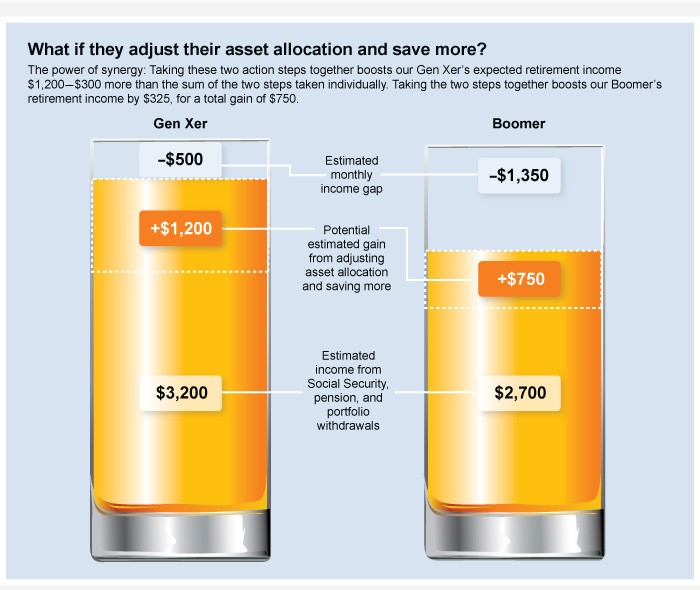10 Reasons Why Asset Allocation Is Everything For Retirement Saving
Post on: 31 Март, 2015 No Comment

Follow Comments Following Comments Unfollow Comments
A popular recent article in the New York Times suggested that Americans who aren’t saving enough for retirement can blame Wall Street ’s high fees on investment products for their shortfall.
We can’t dismiss our culpability entirely. The current national savings rate posted by the Federal Reserve hovers around 5%. not nearly enough to fund our golden years no matter what we invest in.
It is true that fees nonetheless take a major chunk out of portfolios. Compound interest, the mechanism at work for all investment returns, has the glorious effect of growing assets exponentially over time. The downside to this phenomenon is that fees also have an exponential effect, eating a bigger and bigger chunk of possible returns as the years go by. For long-term investments like retirement savings, even moderate fees have a huge impact.
Even moderate fees can eat a major chunk of portfolio returns over time.
One answer to this problem is to choose a few simple low-fee investments like passive funds and ETFs. bypassing higher fee mutual funds and fee-charging advisors. When you opt for passive options on your own, then you are faced with a new problem: asset allocation. Asset allocation is the process of divvying up dollars into different asset classes, like large or small cap stocks, bonds, commodities and other alternatives.
Here are 10 reasons why retirement riches spring from allocation, and why you should rethink just how much you can do with a few simple shares of SPDR S&P 500 (SPY ) and iShares Core U.S. Aggregate Bond ETF (AGG ).
1. Nearly 100% of returns are directly due to asset allocation.
Most returns are “explained” by asset allocation, in investment parlance. That means it matters more how you divide up the pot into bonds, U.S. stocks, international stocks, etc. than it does whether you pick the best (or worst) funds in each of those asset classes.
To answer the question of how important asset allocation is to overall returns, there are a few ways to slice and dice the data. For individual investors, the salient question is how influential it is to a single portfolio over time. From this viewpoint, a number of trustworthy research studies find that asset allocation explains about 100% of the level of investor returns.














